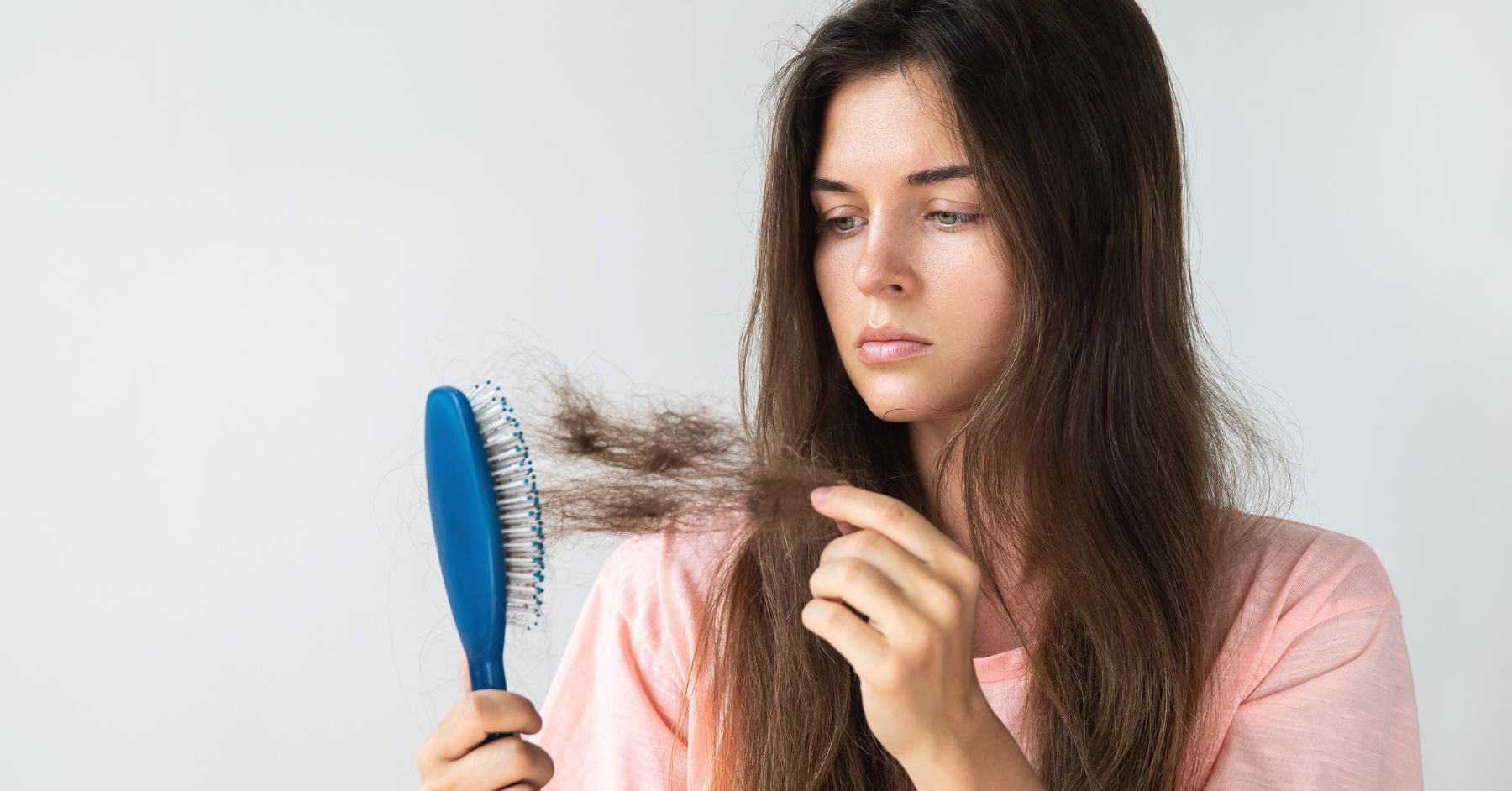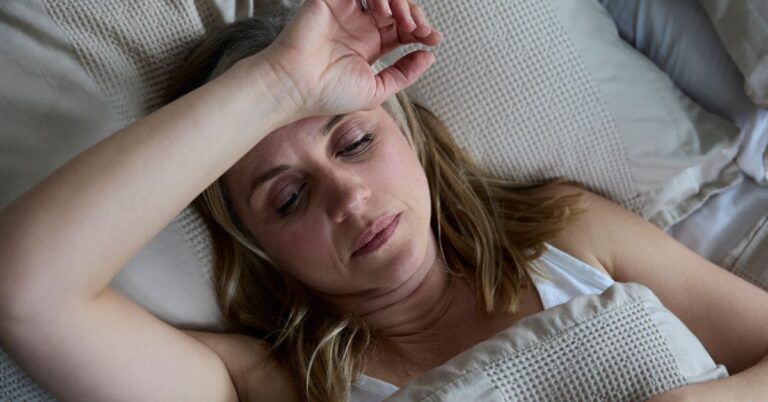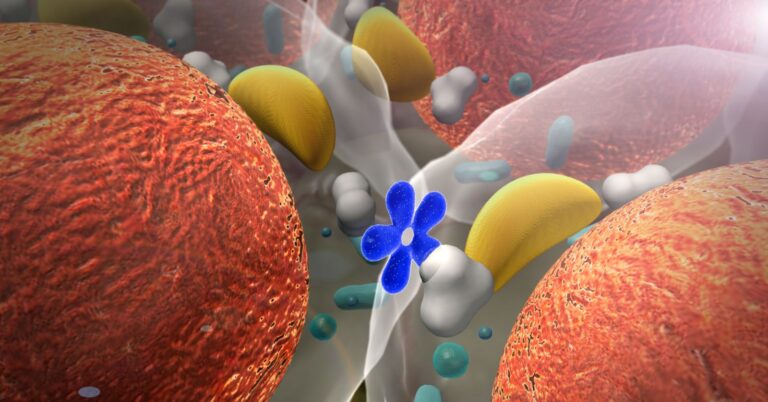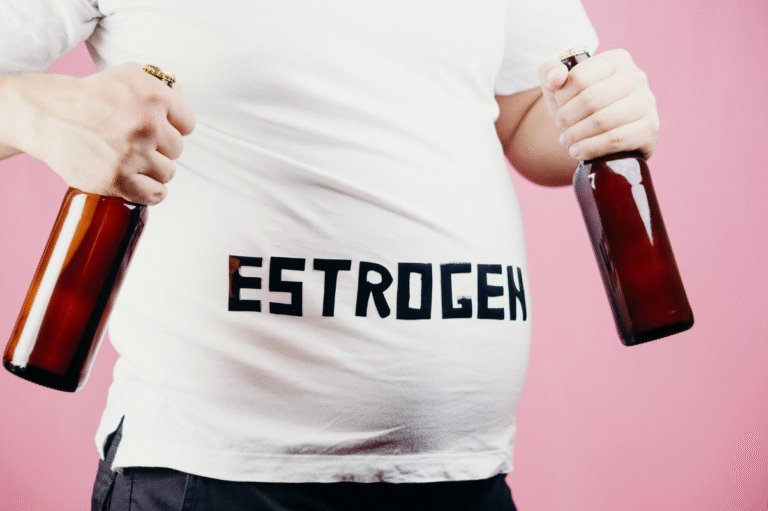PCOS Hair Loss: Why It Happens and 6 Proven Ways to Regrow Naturally
Millions of women suffer from PCOS, and although weight gain and irregular periods are common symptoms, one of the most annoying and upsetting side effects is hair loss. You’re not dreaming if you’ve noticed more hair in the shower drain or if your ponytail has gotten thinner. The good news? With the correct mix of lifestyle modifications, supplements, and scalp care, PCOS-related hair loss can be controlled and, in many cases, reversed naturally and successfully. Here are the most recent scientific findings and professional tips on hair growth and confidence restoration.
Why Does PCOS Cause Hair Loss?
A hormonal imbalance, specifically an excess of androgens (male hormones like testosterone), is brought on by PCOS. A disorder known as androgenic alopecia, or female-pattern hair loss, can result from these high hormone levels shrinking hair follicles. According to board-certified endocrinologist Dr. Keshini Parbhu, MD, “high levels of androgens in PCOS can cause scalp hair thinning while simultaneously increasing facial or body hair.” “Patients find it frustrating because the symptoms seem contradictory, even though both are signs of androgen excess.” Hair loss in PCOS typically manifests as part enlargement, general crown thinning, or hard-to-control shedding, even with a healthy hair regimen.
Study Findings: What the Research Shows
Emerging research supports several natural and evidence-backed strategies to treat PCOS hair loss at its hormonal root:
1. Inositol Supplementation
A 2023 review published in Nutrients highlighted that myo-inositol and D-chiro-inositol help reduce androgen levels and improve insulin sensitivity two key factors in PCOS hair loss.
2. Saw Palmetto
It has been demonstrated that this plant-based, natural DHT-blocker, which is comparable to finasteride, promotes hair growth in women with androgenic alopecia. After 24 weeks, 38% of participants in a 2020 study reported having more hair.
3. Vitamin D and Iron Deficiency
Both nutrients play a role in hair follicle cycling. According to the Journal of Clinical and Aesthetic Dermatology, low vitamin D and ferritin levels are commonly found in women with hair loss, especially those with PCOS.
Public Health Impact: Why PCOS Hair Loss Matters
Hair loss is frequently written off as a cosmetic concern, but for women with PCOS, it can lead to depression, anxiety, and problems with self-esteem. According to studies, women’s hair thinning has a major negative psychological impact and frequently results in social disengagement and a decreased quality of life. According to reproductive endocrinologist Dr. Andrea Thomas, “hair loss is more than just superficial it reflects internal imbalances because PCOS affects so many systems in the body.” “For this reason, it is crucial to address the underlying cause.” Women can restore not only their hair but also their hormonal and mental health by treating hormonal and metabolic imbalances holistically.
6 Natural and Proven Ways to Regrow Hair with PCOS
Ready to take action? Here are expert-recommended strategies to stimulate regrowth naturally:
1. Balance Blood Sugar with Diet
A low-glycemic, anti-inflammatory diet stabilizes insulin and reduces androgen production. Focus on whole foods, fiber, and healthy fats think leafy greens, omega-3s, and whole grains. Read more at CDC
2. Take Inositol Daily
Myo-inositol (2–4g per day) in combination with D-chiro-inositol has shown strong results in reducing testosterone and improving ovulatory function both crucial for hair health.
3. Apply Rosemary Oil
A 2015 study found that rosemary oil was just as effective as minoxidil (Rogaine) in promoting hair growth over 6 months. Massage a few drops into your scalp 2–3 times a week.
4. Consider Saw Palmetto or Spearmint Tea
Both have natural anti-androgenic effects. Saw palmetto supplements (160 mg twice daily) or 2 cups of spearmint tea per day may help lower excess androgens.
5. Correct Nutrient Deficiencies
Ask your doctor to test for vitamin D, iron (ferritin), zinc, and B12. Replenishing these can restore the hair growth cycle.
6. Reduce Stress & Prioritize Sleep
Chronic stress raises cortisol, which worsens hormonal imbalance. Practice calming habits like yoga, meditation, or even short daily walks to support adrenal health and promote scalp circulation.
Patience, Persistence, and Professional Support
Although it’s not permanent, PCOS hair loss can be extremely depressing. Regrowth is achievable with the correct mix of hormonal balance, dietary support, and mild topical treatment. Dr. Parbhu advises against expecting results right away. “The long-term advantages for your hair and hormones are worth the three to six months of consistent care that may be required before you notice noticeable changes.”For a customized treatment plan that might involve prescription drugs or extra laboratory testing, speak with a board-certified dermatologist or endocrinologist if your hair loss is severe or getting worse.
Check out the healthlynic ✔️approved range of products for Weight Loss, Improve metabolism and much more!







